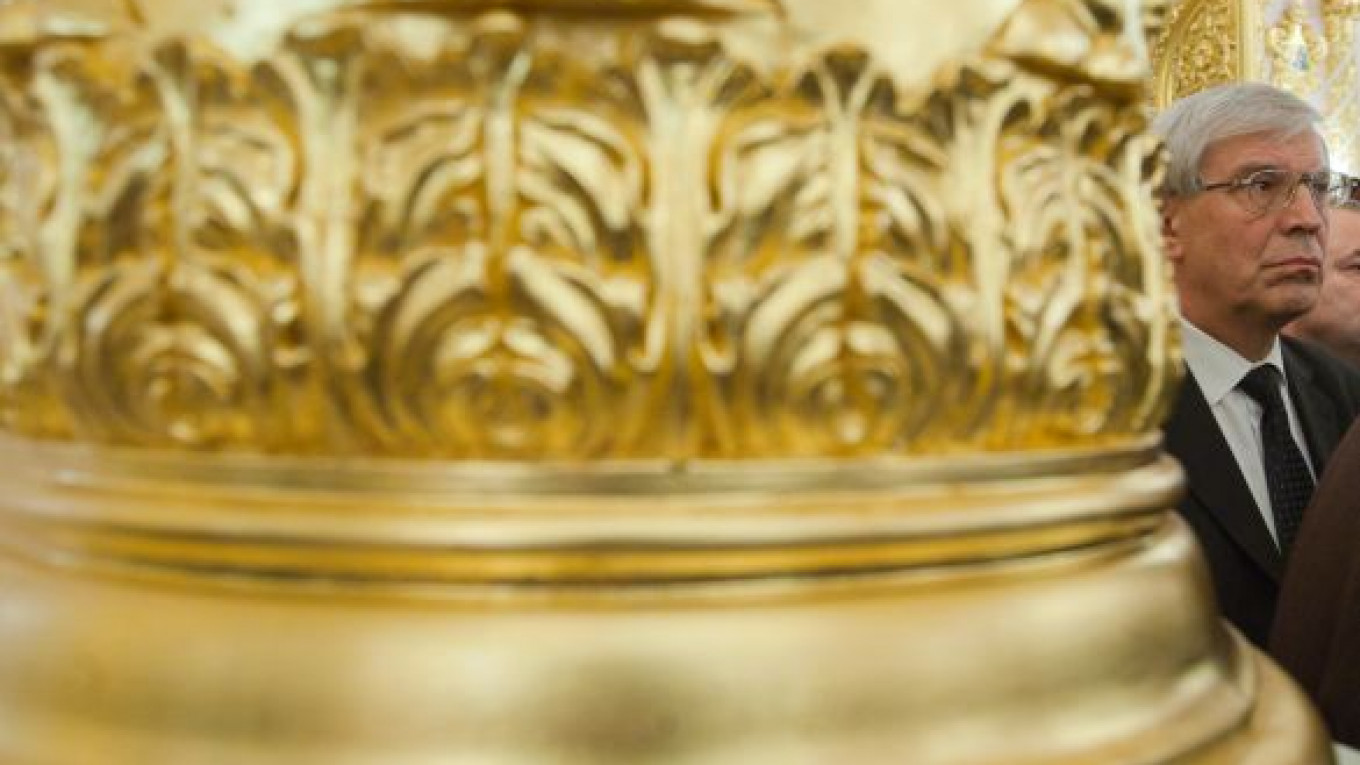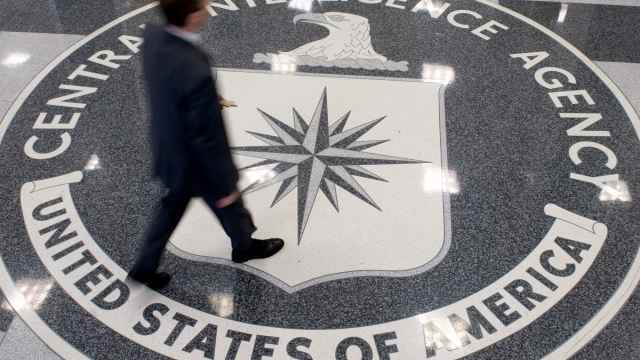Capital outflow from Russia has reached about $49.3 billion so far in 2011, with an estimated $18.7 billion leaving in the third quarter, the Central Bank said.
Third-quarter outflows were more than double outflows in the second quarter, which were revised to $9.2 billion, a Central Bank statement released late Tuesday showed.
The flood of capital leaving the country appears to have swelled in recent months. Sergei Ignatyev, chairman of the Central Bank, said Wednesday that $13 billion — or 70 percent — of the third-quarter outflow had left the country in September, Bloomberg reported.
A loss of $49.3 billion — or about 4 percent of gross domestic product — since January means that by the end of the year Russia is likely to record its largest annual capital outflow figures since 2008, when the world was in the throes of a global economic crisis.
The 2011 total has already exceeded that of 2010, when $35.3 billion left the country. Central Bank numbers show that $56.1 billion left in 2009 and $133.7 billion in 2008. The last time a capital inflow was recorded was in 2007, when $81.7 billion entered Russia.
The gloomy third-quarter figures have defied official predictions and optimistic statements by government ministers.
The Central Bank's most recent forecast for total capital outflow this year was $36 billion. The Economic Development Ministry initially predicted that there would be no capital flight from Russia in 2011 — but Deputy Economic Development Minister Andrei Klepach said in August that outflows were likely to reach up to $40 billion.
Former Finance Minister Alexei Kudrin said at the St. Petersburg Economic Forum in June that net capital outflow could be less than the Central Bank forecast. Capital flight was caused, he said, by "the high oil price and the impossibility of investing this revenue on the domestic market."
But the recent hike in outflows had little to do with domestic political developments, or the business climate, and was much more likely to have been precipitated by stock market declines, weakness in the ruble and increasing difficulties in accessing European debt markets, said Vladimir Tikhonov, chief economist at Otkritie Capital.
The ruble dropped to its weakest close against the dollar for more than two years Wednesday, and Russian markets tracked the downward plunges of global stocks in August and September.
Logged by the Central Bank, capital flows measure the cross-border movement of cash. As well as direct investment, this includes debt. If companies have difficulty rolling over debt, then it can lead to sharp reductions in capital inflow.
The most recent figures were reminiscent of those during the 2008 crisis, Tikhonov said. "I wouldn't rule out that we could get $20 billion to $30 billion of capital outflows in the fourth quarter, if the current global situation continues," he said.
A Message from The Moscow Times:
Dear readers,
We are facing unprecedented challenges. Russia's Prosecutor General's Office has designated The Moscow Times as an "undesirable" organization, criminalizing our work and putting our staff at risk of prosecution. This follows our earlier unjust labeling as a "foreign agent."
These actions are direct attempts to silence independent journalism in Russia. The authorities claim our work "discredits the decisions of the Russian leadership." We see things differently: we strive to provide accurate, unbiased reporting on Russia.
We, the journalists of The Moscow Times, refuse to be silenced. But to continue our work, we need your help.
Your support, no matter how small, makes a world of difference. If you can, please support us monthly starting from just $2. It's quick to set up, and every contribution makes a significant impact.
By supporting The Moscow Times, you're defending open, independent journalism in the face of repression. Thank you for standing with us.
Remind me later.







